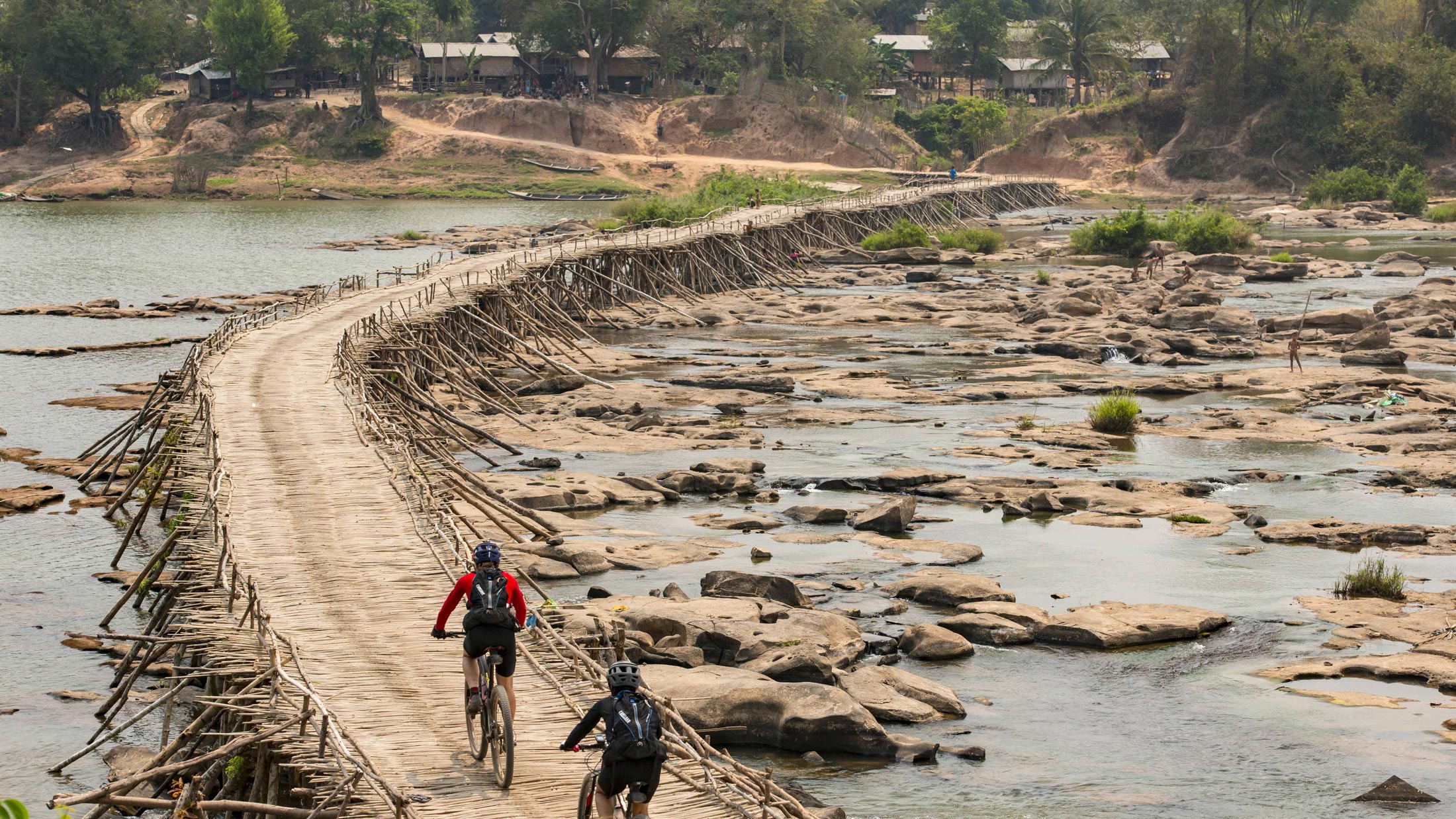
Videos
Rebecca Rusch rides the blood road in search of her fathers plane.
With the goal of reaching the site where Rebecca’s father, a U.S. Air Force pilot, was shot down in Laos more than 40 years earlier, Rebecca and her Vietnamese riding partner, Huyen Nguyen, pedal the infamous Ho Chi Minh Trail through the dense jungles of Vietnam, Laos, and Cambodia.
During this poignant voyage of self-discovery, the women push their bodies to the limit, while learning more about the historic ‘Blood Road’ and how the Vietnam War shaped their lives in very different ways.
“The most alarming discovery of the entire journey was learning about the vast amount of unexploded wartime ordnance that still remains and continues to threaten human lives,” said Rusch.“ I went there searching for my Dad and pieces of myself, but came home with the understanding that I can use my bike for a bigger purpose than just winning races. I feel a deep responsibility to be part of the solution by using my bike to facilitate change and recovery,” said Rebecca Rusch.
Rebecca and the team had mapped the most historically accurate route possible, but the remote nature and the lack of information left many unknowns as even the trails that were mapped change each rain season. Bridges frequently get washed-out and roads that were supposed to be there, weren't. There was so much that couldn’t be planned for which meant the team had to be flexible and face the challenges as they came up. "If I had been a less experienced athlete, I would not have had the ability to adapt and deal with the changing environment and massive demands of an expedition like this,” said Rebecca.
Within the 2000km long and highly demanding endurance journey, Rebecca and Huyen spent 380 hours riding altogether, averaging 12-14 hours per day.
“Initially our focus of the story was chronicling Rebecca’s intense physical journey on the Ho Chi Minh Trail, but along the way we uncovered a much deeper emotional journey,” said the film’s director Nicholas Schrunk. “My hope is that regardless of a viewer’s background, political views, or personal feelings that they would see not just the physical and emotional scars that war leaves, but also how families, countries, and cultures can come together to heal those wounds,” said Nicholas Schrunk.
Find the film in more than 50 cities worldwide throughout the summer. Additional opportunities to screen BLOOD ROAD are available at BloodRoadFilm.com.
